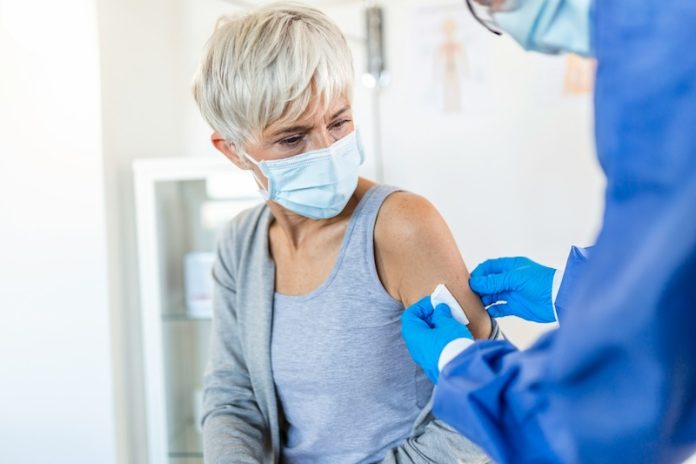
Shingles, a painful skin condition caused by the same virus that causes chickenpox, may carry some unexpected risks, according to a recent study.
For those who don’t know, shingles is a condition that shows up as an annoying skin rash. It’s caused by the varicella-zoster virus, the same virus responsible for chickenpox.
After you’ve had chickenpox, the virus doesn’t leave your body. Instead, it stays inactive, sometimes coming back as shingles years later.
This reactivation is more common in older adults. When the virus reawakens, it can increase the risk of a heart attack or stroke, especially within the first month.
If the virus reactivates in a facial nerve, the risk of a stroke can double or even triple. This highlights the importance of the shingles vaccine.
The shingles vaccine is more than just a preventive measure against the rash. It can also reduce the risk of heart attacks and strokes. James Mbinta, the lead researcher of the study, believes this vaccine has significant potential.
The vaccine doesn’t just prevent the rash; it also cuts the risk of heart attacks and strokes within the first 42 days after getting vaccinated. How did researchers find this out?
They examined hospitalization data for two periods: the first 42 days after vaccination and a later period from 72 to 162 days post-vaccination. They found fewer hospitalizations in the first period, suggesting that the vaccine might reduce the risk of stroke and heart attack by nearly half in the first six weeks.
The study analyzed data from 278,375 adults in New Zealand who got the shingles vaccine between 2018 and 2021. Most of these people were aged 70 or older, showing that the vaccine may be particularly beneficial for older adults.
Professor Colin Simpson, another researcher, noted that their results matched similar studies in Australia, which also showed fewer strokes among adults aged 70 to 79 who had received the shingles vaccine.
This isn’t the first study to show the benefits of the shingles vaccine. Earlier research by Mbinta showed that the vaccine could lower the risk of hospitalization due to nerve pain, a painful problem that can follow shingles.
About one in three people will get shingles at some point in their lives, and the risk increases with age. For those aged 70 and above, getting vaccinated against shingles could mean protection not only from the rash but also from serious health issues like heart attacks and strokes.
As with any vaccine, it’s important to consider both the benefits and potential risks. Talk with your healthcare provider to make an informed decision that suits your health needs and circumstances.
The shingles vaccine has emerged as a potential shield against heart attacks and strokes for older adults. Its ability to reduce the risk of these serious events during the crucial early weeks after vaccination makes it a valuable tool in promoting heart and brain health.
If you care about stroke, please read studies about how to eat to prevent stroke, and diets high in flavonoids could help reduce stroke risk.
For more information about health, please see recent studies about how Mediterranean diet could protect your brain health, and wild blueberries can benefit your heart and brain.
Copyright © 2024 Knowridge Science Report. All rights reserved.



